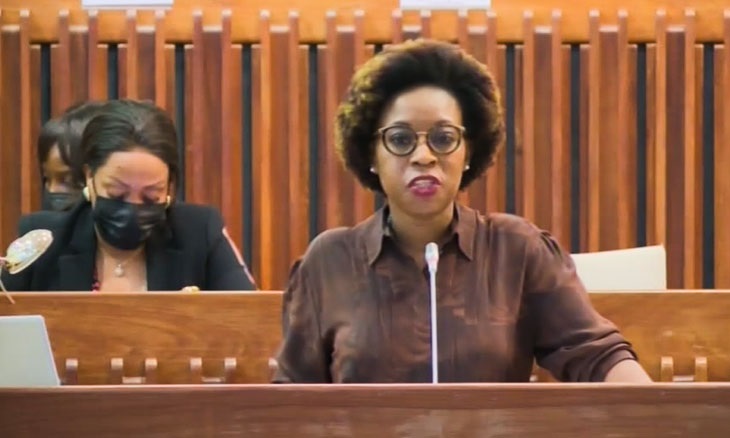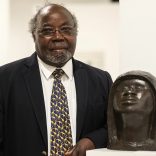Mozambique: Security situation in north 'continues to deteriorate' - UNHCR
Mozambique: Attorney-General wants legal limit on cash transactions – AIM report

Photo: O País
Mozambique’s Attorney-General. Beatriz Buchili, on Thursday suggested to the Mozambican parliament, the Assembly of the Republic, that a legal limit should be put on the amount of cash that can be used in any transaction.
She said that the kidnap gangs, who have been abducting business people and their relatives in the main cities, have bypassed the Mozambican banking system by demanding payment of enormous ransoms in cash.
The criminals, she added, had been adopting what she regarded as “more sophisticated” methods, which do not use the normal financial system. Putting large sums of cash into circulation, Buchili said, “favours illicit transactions, and has contributed to the increase in economic and financial crime”.
That cash can be used “to finance ransoms, trafficking in drugs, in people and in minerals, payment of bribes, and to purchase buildings, vehicles, guns and other instruments, intended for committing future crimes”.
Restrictions were thus needed, to limit cash payments, and to encourage citizens to use the financial system for their transactions.
She urged citizens who knew about the kidnappings or had information on suspicious movements, to come forward. For the kidnap victims are held in captivity in rented houses “where other citizens cook, clean and do the laundry for the kidnappers, and are paid for these services – with total indifference to the suffering and lives of the victims”.
Also linked with kidnapping and other forms of organised crime was the appearance of “young people who display ostentation and wealth, without any known activity that explains their life style”. Unfortunately, Buchili added, instead of being investigated, these youths “are regarded as people of success and as examples to be followed”.
Like her predecessors in the post, Buchili insisted that organised crime has infiltrated public and private institutions. This meant that there should be “greater rigour in selecting and recruiting staff, and greater control over their activities, through inspections and disciplinary actions, so as to guarantee integrity and success in the fight against crime”.
She praised the government’s plans to set up an anti-kidnapping unit, which was in line with the intentions of her office to set up a sector that would specialise “in combating organised and complex crime”.
Buchili categorically denied a claim made by Antonio Muchanga, a deputy of the main opposition party, Renamo, that she had ever said there was “a lack of political will” to prevent and fight against kidnappings.
Turning to the attacks by islamist terrorist in the northern province of Cabo Delgado, Buchili warned against “acts of disinformation, carried out by individuals, with undeclared purposes, including from outside the country, who use information and communication technologies to create agitation and to disturb the normal life of the public.”
Disinformation “is also a way of violating fundamental rights”, she said, “since it worsens the suffering, panic and displacement that citizens have been subjected to because of terrorism”.
Buchili revealed that the Public Prosecutor’s Office has begun criminal proceedings in one case of disinformation earlier this month. She gave no details, but the most notorious piece of disinformation was the fabrication of an attack against the town of Mueda, which supposedly happened on 15 April. The story ran in much of the Portuguese media, and in a few of the Mozambican media. Those who spread the story claimed to have photographs of beheaded and disembowelled corpses, but which were too grisly to be printed.
But there were no photos because there was no attack. The seed for the rumour was a cut in mobile phone communications in Mueda, which turned out to be caused, not by any act of terrorism, but by a technical problem with the fibre-optic cable.
Buchili added that “we must warn our young people about the use of information and communication technologies since experience shows us that these technologies are also used to recruit people on the pretexts of job or scholarship opportunities, when the real purposes is to pressgang them into terrorist groups”.












Leave a Reply
Be the First to Comment!
You must be logged in to post a comment.
You must be logged in to post a comment.